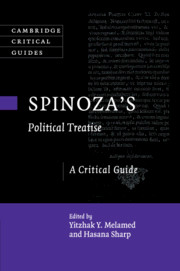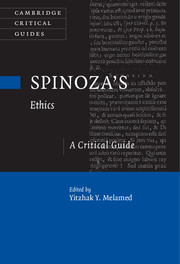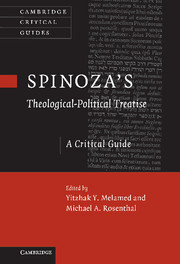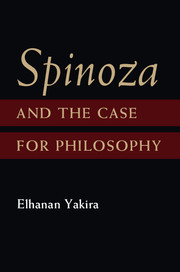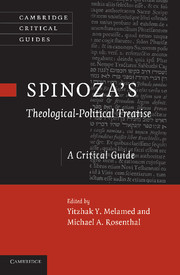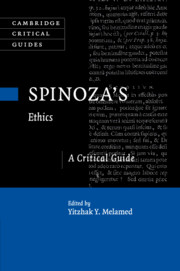Spinoza's Political Treatise
Spinoza's Political Treatise constitutes the very last stage in the development of his thought, as he left the manuscript incomplete at the time of his death in 1677. On several crucial issues - for example, the new conception of the 'free multitude' - the work goes well beyond his Theological Political Treatise (1670), and arguably presents ideas that were not fully developed even in his Ethics. This volume of newly commissioned essays on the Political Treatise is the first collection in English to be dedicated specifically to the work, ranging over topics including political explanation, national religion, the civil state, vengeance, aristocratic government, and political luck. It will be a major resource for scholars who are interested in this important but still neglected work, and in Spinoza's political philosophy more generally.
- Offers diverse perspectives on a major work of Spinoza
- The first volume in English to concentrate solely on the Political Treatise
- Presents a clear exposition of Spinoza's political philosophy
Product details
April 2020Paperback
9781316621660
231 pages
150 × 230 × 15 mm
0.35kg
Available
Table of Contents
- Introduction Yitzhak Y. Melamed and Hasana Sharp
- 1. What is real about 'ideal constitutions'? – Spinoza on political explanation Michael A. Rosenthal
- 2. Statesmen vs. philosophers: experience and method in Spinoza's Political Treatise Julie E. Cooper
- 3. The condition of human nature: Spinoza's account of the ground of human action in the Tractatus Politicus Moira Gatens
- 4. Politically mediated affects: envy in Spinoza's Tractatus Politicus Susan James
- 5. Longing (desiderium) for vengeance as the foundation of the commonwealth Chantal Jacquet
- 6. Family quarrels and mental harmony: Spinoza's Oikos-Polis analogy Hasana Sharp
- 7. Spinoza on national religion Mogens Laerke
- 8. Religion and the civil state in the Tractatus Politicus Daniel Garber
- 9. Spinoza on aristocratic and democratic government Theo Verbek
- 10. When is having too much power harmful? – Spinoza on political luck Yitzhak Y. Melamed
- 11. Spinoza and political absolutism Justin Steinberg
- 12. The revolutionary foundation of political modernity: Machiavelli, Spinoza, and constituent power Filippo Del Lucchese.

